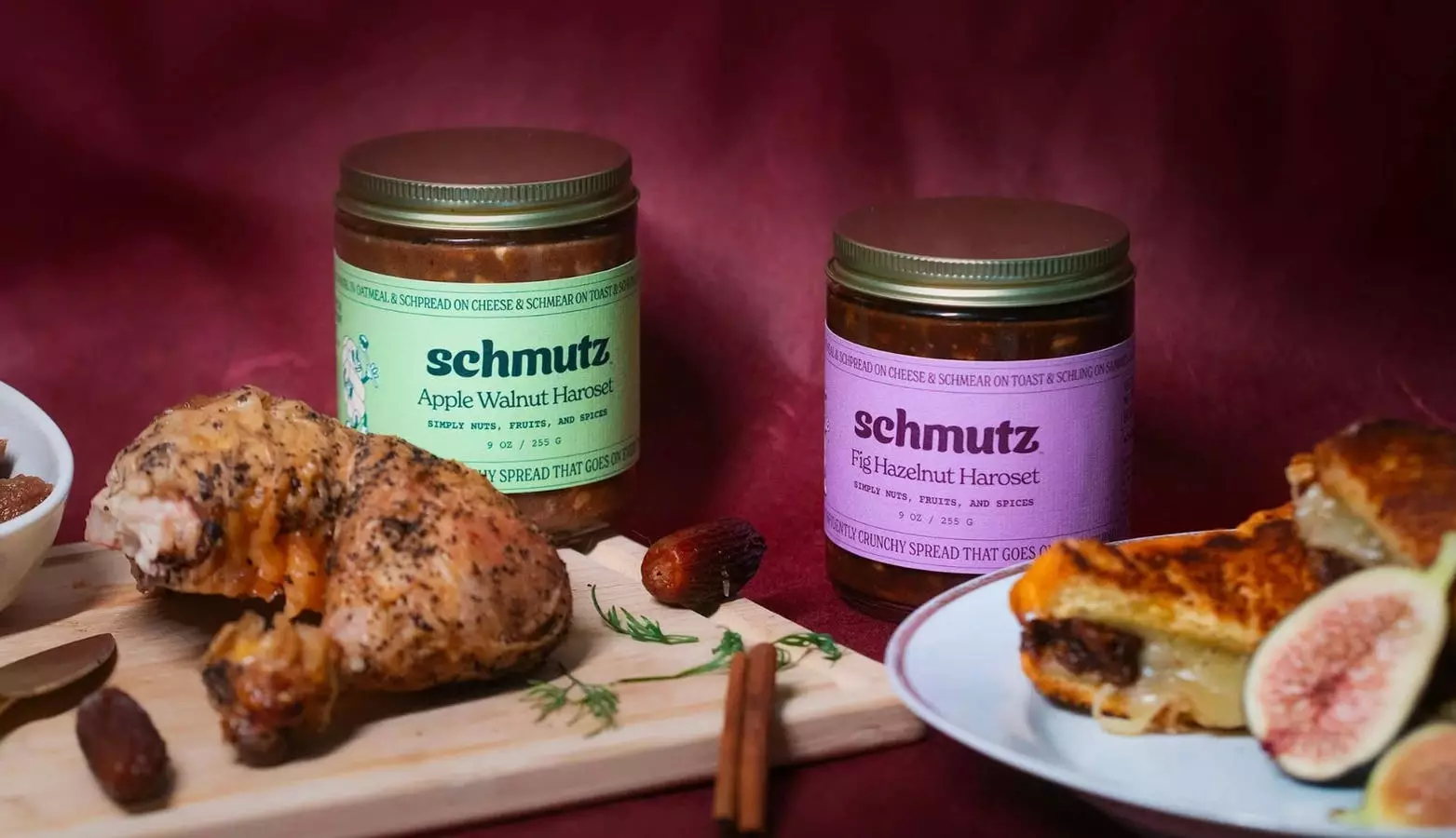As Jewish communities around the world prepare for Rosh Hashanah, the Jewish New Year, the symbolic act of dipping apples in honey is a time-honored tradition, representing a wish for a sweet new year. However, the evolution of culinary practices among modern Jewish entrepreneurs demonstrates a cultural shift toward using food not only to signify tradition but also to inspire connectivity and creativity. One such innovation comes from entrepreneur Michael Rubel who has reimagined the traditional haroset by introducing a contemporary, year-round version called “Schmutz.”
Rubel’s journey with haroset began long before he launched his product. Having grown up in various states, from Maine to Kansas City and finally Dallas, he experienced both vibrant Jewish communities and the isolation of being one of few Jews in a particular setting. This duality shaped his understanding of Jewish culture and food. With a Jewish Studies background, he became fascinated by the way Jewish communities across the diaspora created culinary staples that provide a sense of belonging and identity, even when far from their roots.
Rubel’s nostalgic connection to haroset stems from his mother’s home cooking during Passover. The familiar blend of apples, walnuts, and cinnamon served as a powerful anchor to his heritage. Inspired by this childhood memory and motivated by a desire to innovate, Rubel began experimenting with haroset recipes from diverse cultures, exploring variations from Jamaica to Italy. He was particularly captivated by a Kurdish recipe that featured hazelnuts and blackcurrants, a combination that sparked his imagination and encouraged him to see haroset in a new light.
In April 2023, Rubel launched Schmutz, a pre-packaged version of haroset designed to be enjoyed year-round. The concept was rooted in Rubel’s culinary philosophy that just as people enjoy salsa and chili crisps with different meals, haroset can transcend its Passover origins. The name “Schmutz” cleverly melds the notion of a spreadable delight while retaining the essence of traditional haroset, thus appealing to both Jews and non-Jews alike.
Rubel’s vision was to create a haroset that embraced both texture and versatility. He aimed for a product that could be used not just at the Seder table, but in various dishes—from grilled cheese sandwiches to desserts, showcasing its adaptability. By focusing on crunch and spice, Schmutz is less of a simple condiment and more of an exciting culinary ingredient that invites creativity in the kitchen.
The evolution of haroset through Schmutz reflects broader trends in Jewish cuisine where traditional dishes are reinterpreted and brought into contemporary culinary conversations. Jeffrey Yoskowitz, co-founder of The Gefilteria, highlights that there’s a resurgence in Jewish food traditions among younger generations who are eager to explore their heritage through modern culinary expressions. The path from a dish traditionally associated only with Passover to one that can be enjoyed daily demonstrates a shift in perception about these foods.
Rubel’s preparation methods ensure that Schmutz remains authentic to its roots, using only apples, nuts, and spices, without preservatives or artificial flavors. His dedication to creating a product that respects Jewish culinary traditions while allowing for innovation is evident in every jar. Furthermore, his story of Schmutz embodies the connection to history and food—a blend of family memories and cultural evolution.
Rubel sees Schmutz as a vehicle to inspire a deeper appreciation for Jewish food traditions and to encourage individuals to engage with these foods outside of their typical settings. Celebrating the flavors and narratives connected to Jewish diaspora allows for a richer understanding of cultural heritage. As Rubel navigates the entrepreneurial landscape with Schmutz, he demonstrates that Jewish food is not just about nostalgia; it is about forming connections, both to the past and to one another in the present.
By inviting people to rethink how they incorporate haroset into their lives—from a seasonal delicacy to a year-round staple—Rubel advocates for a broader acceptance of Jewish cuisine. His vision aligns with current culinary trends that embrace diversity and fusion, encouraging a spirit of inclusivity as symbols of Jewish identity continue to evolve. Ultimately, Schmutz acknowledges tradition while simultaneously inviting a taste of innovation—proving that culinary heritage can adapt and thrive in the modern world.


Leave a Reply